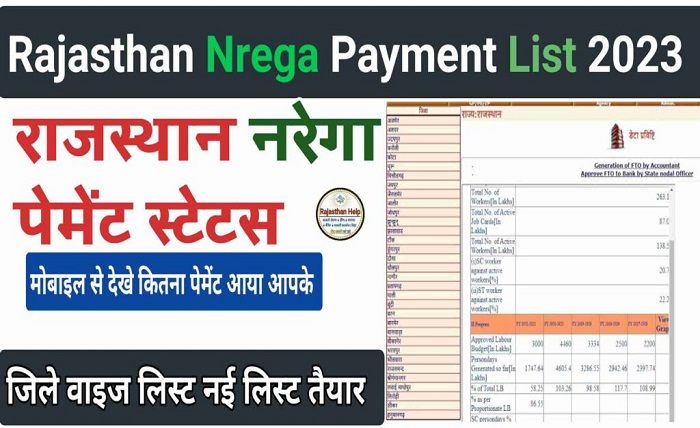
NREGA in Rajasthan: Empowering Rural Communities
The Mahatma Gandhi National Rural Employment Guarantee Act (MGNREGA), implemented in 2005, has been a landmark initiative in providing rural communities with employment opportunities and social security. Rajasthan, a state with a predominantly rural population, has been at the forefront of implementing NREGA, making it a significant source of livelihood for its rural citizens.
NREGA in Rajasthan: Key Facts and Figures
- Number of Districts: 33
- Total Number of Blocks: 352
- Total Number of Gram Panchayats: 11,310
- Total Number of Job Cards Issued: 114.73 Lakh
- Total Number of Workers: 230.03 Lakh
- Total Number of Active Job Cards: 89.03 Lakh
These figures highlight the widespread reach of NREGA in Rajasthan, with millions of job cards issued and a substantial number of active workers benefiting from the scheme.
Benefits of NREGA for Rural Rajasthan
NREGA has positively impacted rural Rajasthan in various ways:
1. Employment Generation: The scheme guarantees 100 days of unskilled manual labor to every rural household that applies, providing a vital source of income and financial stability for families. This is particularly crucial during lean agricultural seasons when employment opportunities are scarce.
2. Improved Livelihoods: The wages earned under NREGA help families meet their basic needs for food, clothing, and healthcare. It also enables them to invest in education and other essential needs, leading to improved overall quality of life. infrastructure projects
3. Infrastructure Development: NREGA funds are used for various, including the construction of roads, irrigation canals, and water conservation structures. These projects not only create employment but also improve rural infrastructure, leading to better connectivity and access to essential services.
4. Women Empowerment: NREGA has played a significant role in empowering women in rural Rajasthan. With one-third of the job cards issued to women, the scheme has provided them with financial independence and increased their participation in decision-making processes within the household and community.
5. Social Security: NREGA provides a safety net for rural communities, particularly during times of natural disasters or economic hardship. The guaranteed wages ensure that families have a source of income even when faced with unforeseen circumstances.
Challenges and Opportunities
Despite its significant contributions, NREGA in Rajasthan faces certain challenges:
- Delays in Wage Payments: Occasional delays in wage payments can cause hardship for rural families.
- Lack of Awareness: Some communities remain unaware of their rights under NREGA and how to access the scheme’s benefits.
- Transparency and Accountability: Ensuring transparency and accountability in the implementation of NREGA at the grassroots level is crucial.
However, these challenges also present opportunities for improvement:
- Digitalization: Leveraging technology to streamline the payment process and provide real-time information to workers can address delays and increase transparency.
- Community Engagement: Spreading awareness about NREGA through community-based initiatives can ensure wider participation and empower individuals to claim their rightful benefits.
- Social Audits: Regular social audits can enhance transparency and accountability in the utilization of NREGA funds, promoting good governance.
Conclusion
NREGA has significantly impacted the lives of millions in rural Rajasthan, providing employment opportunities, enhancing livelihoods, and empowering communities. Addressing the existing challenges and capitalizing on the opportunities presented will further strengthen NREGA’s role in fostering sustainable development and improving the lives of rural Rajasthani citizens.




